Acne can affect more than your skin
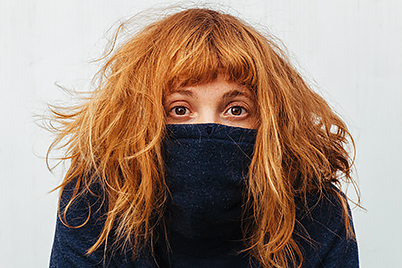
Depression
Anxiety
Low self-esteem
Poor self-image
Decreased quality of life
A feeling of being all alone
If you’re wondering how acne could cause these problems, you only have to read Jill’s story.
Acne made Jill’s college days difficult
Jill had typical teenage acne, but what happened during her second year of college completely surprised her. Large, painful acne cysts and nodules began appearing on her face. She tried treating them with acne treatments that she could buy at the store. Nothing worked. Desperate for help, Jill went to her student health center.
Because Jill’s acne was severe, she was given a prescription for an antibiotic. This is often the first treatment given to a patient with severe acne. A dermatologist also injected medication into a few of her most painful cysts to help clear them. The treatment helped for a few days. Then her acne flared.
Her doctor prescribed antibiotic after antibiotic. Nothing worked. She felt devastated, and said that she just wished she could wear a veil.
By this time, Jill felt that she couldn’t face people. She quit her job, which she needed to help support herself.
She did stay in school, but it was difficult. “Somehow, I managed to continue my studies,” she said. But friendships and extracurricular activities suffered. The acne left her feeling too stressed and withdrawn. She felt alone.
Jill finally got relief from her acne when she saw a dermatologist who prescribed isotretinoin (eye-soh-tret-in-OH-in), a medication used to treat severe acne. The isotretinoin got her acne under control, but by this time, she had permanent scars and discolored skin.
After graduating, Jill moved back home. She didn’t start looking for a job. Instead, she asked her parents if they would pay for surgery to treat her acne scars.
After having cosmetic surgery, Jill said, “My skin is nowhere near as clear as before, but for the first time in over a year, I felt somewhat normal in appearance.” This feeling allowed her to get on with her life. Jill was able to get a job and start her career.
Mild or severe acne can cause emotional pain
Jill’s story isn’t unique. Every day, dermatologists see the devastating effects that acne can have on someone’s life.
Bullying can occur. Other kids may hurl names like “crater face” at their classmates with widespread acne. This bullying can cause self-esteem to plummet. It can cause teens to feel so upset that they want to be alone. They may make few friends.
In research studies, people with acne have said that their skin makes them feel unattractive, embarrassed, or self-conscious. These feelings can cause some teens to avoid trying out for sports, getting a part-time job, or participating in class.
Some people say that having acne makes them feel on edge.
Acne and adolescent girls
Studies show that teenage girls suffer significant distress from acne, which makes many feel unattractive.
Even mild acne can affect one’s emotional health. This is especially true for teenage girls. In studies, teen girls often say that acne makes them feel unattractive.
Given that acne can lead to such experiences and feelings, it’s not surprising that researchers have found that people with acne often develop depression or anxiety.
Early treatment can prevent emotional distress, acne scars
Studies show that the longer acne lasts, the more likely it is to affect one’s emotions. Without treatment, acne can also worsen. If acne becomes severe, as it did for Jill, scars can appear as the acne clears.
Early treatment can prevent these problems. It can clear the skin and prevent acne from worsening. Some people need to continue treating their skin to prevent breakouts. For most people that’s probably a lot easier than dealing with the emotional distress and permanent acne scars.
Image
Getty Images
References
Dalgard F, Gieler U, et al. “Self-esteem and body satisfaction among late adolescents with acne: Results from a population study.” J Am Acad Dermatol 2008;59(5):746-51.
Fulton JE, Acne Rx: What acne really is and how to eliminate its devastating effects! Self-published; 2001.
Gorelick J, Daniels SR, et al. “Acne-related quality of life among female adults of different races/ethnicities.” J Dermatol Nurses Assoc. 2015;7(3): 154–162.
Hendon, J. “Acne: A patient's point of view.” J Am Acad Dermatol. 2004;51(1 Suppl):S39.
Nguyen CM, Beroukhim K, et al. “The psychosocial impact of acne, vitiligo, and psoriasis: a review.” Clin Cosmet Investig Dermatol. 2016;9:383-92.
Yentzer BA, Gosnell AL, et al. “Letter to the editor: A randomized controlled pilot study of strategies to increase adherence in teenagers with acne vulgaris.” J Am Acad Dermatol. 2011;64(4):793-5.
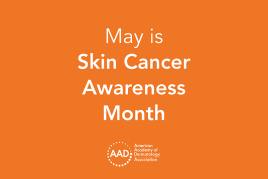 Think sun protection during Skin Cancer Awareness Month
Think sun protection during Skin Cancer Awareness Month
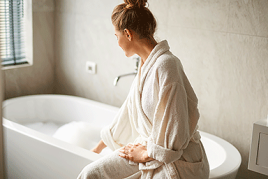 How to care for your skin if you have lupus
How to care for your skin if you have lupus
 Practice Safe Sun
Practice Safe Sun
 Sunscreen FAQs
Sunscreen FAQs
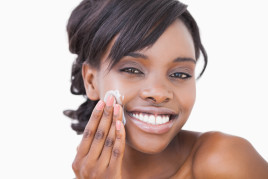 Fade dark spots
Fade dark spots
 Hidradenitis suppurativa
Hidradenitis suppurativa
 Laser hair removal
Laser hair removal
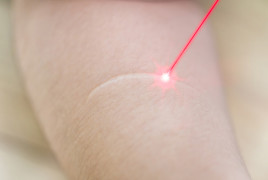 Scar treatment
Scar treatment
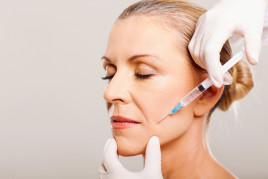 Botox
Botox
 Kids' camp - Camp Discovery
Kids' camp - Camp Discovery
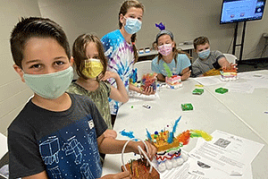 Dermatologist-approved lesson plans, activities you can use
Dermatologist-approved lesson plans, activities you can use
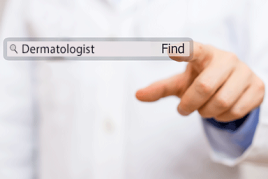 Find a Dermatologist
Find a Dermatologist
 Why choose a board-certified dermatologist?
Why choose a board-certified dermatologist?